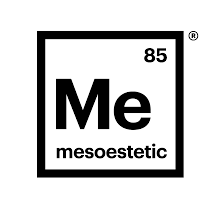Hyaluronic acid is the human body’s natural way of providing volume and a fresh faced appearance – in fact there are large quantities of hyaluronic acid present in the skin. However, as the body ages the amount of hyaluronic acid steadily decreases, often leaving behind sagging and wrinkled skin due to the loss of volume. Today hyaluronic acid is being produced in the laboratory for use in the fight against aging. Hyaluronic acid based dermal fillers such as Juvederm and Restylane are able to plump up the skin in specific areas where volume has been lost. These fillers also have the helpful effect of binding to water molecules in the body, allowing for a long term facial correction.
Since there are now a number of different dermal fillers on the market, selecting the right one can be difficult. Two of the most popularly used hyaluronic acid based dermal fillers are Juvederm and Restylane. Both have specific advantages, and for a patient to make the proper choice it is necessary to carefully compare the two and decide which one is best for their needs.
Overall, Juvederm and Restylane are very similar products. Both are made from hyaluronic acid and are nearly identical in composition. While Juvederm is slightly thicker than Restylane, it is considered by many physicians to be easier to mold and shape into the facial tissue. Both Juvederm and Restylane are injected into the nasolabial folds (the area extending from the edge of the nose to the edge of the lips), the tear troughs underneath the eyes, and the frown lines in the brow area. Both products are also used in the lips as a plumping agent, or for overall lip reshaping.
The primary difference in the products appears to be the texture. Many doctors prefer to use Juvederm in areas such as nasolabial folds or other large areas since it molds into the skin more easily. However, other doctors feel that the two products work equally well even though the texture of Restylane is slightly thinner. In terms of longevity, Juvederm appears to have a slight edge over Restylane. While this effect may vary with each patient, Juvederm is generally considered to be the longer lasting of the two products due to the fact that Juvederm contains about 10 percent more cross-linked hyaluronic acid by volume.
Overall the two products are very similar and in most cases will produce virtually identical results when administered properly by a licensed practitioner. Each patient and doctor may find that they have personal preferences after trying both products, however.











